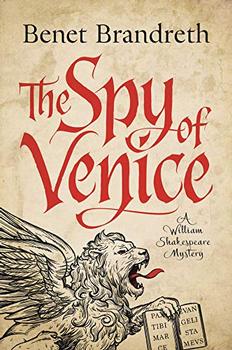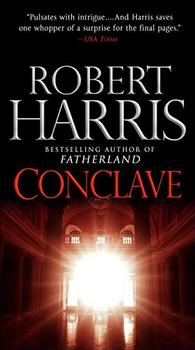Summary | Excerpt | Reviews | Beyond the book | Read-Alikes | Genres & Themes | Author Bio

This Borgia-era novel creates fictional events utilizing factual evidence from historical characters in the manner of Philippa Gregory and Matthew Pearl. The primary players in the Borgia family of Renaissance Italy include Pope Calixtus III, his nephew Pope Alexander VI, Alexander VI's son Cesare, and daughter Lucrezia (See "Beyond the Book").
The Malice of Fortune is set during the papacy of Alexander VI. The story is narrated by Damiata, a Vatican courtesan; and Niccolo Machiavelli, who is most well-known now for his book The Prince. Damiata and Niccolo work with the other mastermind of the time, Leonardo da Vinci, to solve a series of brutal murders.
In the opening third of the novel, we hear from Damiata, mistress of the murdered Duke of Gandia (one of Alexander VI' sons). Though it is not until fairly late in the book when her personal history is revealed, Damiata's narrative voice is a distinctive character that is romantic, mournful, and nostalgic. Her tone greatly satisfied my expectations for historical fiction of this period. The latter two-thirds of the novel is narrated by Machiavelli, who is in his early years as a Florentine diplomat. Contemporary readers who associate Machiavelli with his writing about deceptive politics will find Ennis's depiction of the founder of political ethics to be somewhat startlingly kind, sympathetic, and human.
Ennis, an art historian, takes great pains with the historical and cultural authenticity of the story. The novel's prolific use of Italian and Latin phrases, of characters' multiple names and court titles, and of period literature and architecture are a treat for readers who value historical accuracy. For those who are familiar with the late years of the Italian Renaissance, The Malice of Fortune will make a fun and quick read. Those who are less familiar with the period and culture may find the narrative trickier to navigate for precisely the same reasons: a liberal use of Italian, multiple monikers and copious attention to detail.
The Malice of Fortune excels in the details. Depictions of clothing, town centers, and the denizens of early 16th century Italy are evocative and feed the craving for a bit of otherworldly, escapist drama. Ennis excels at the brief, small elements: a maidservant who plays a marginal but memorable role; descriptions of Machiavelli's messy mop of hair and of a cold mountain night. The novel gets a little lost on the broader level of the narrative arc, weighed down by awkward murder-related plot cues. On this level, the complicated narrative that incorporates the whole Borgia family and most of their wars in addition to many other characters, begins to feel clunky, particularly around the story's halfway point.
There are clear attempts from Ennis to clarify the potential muddiness of the story: the novel is prefaced by a map of Italy in 1502, a three-page excerpt from a Cesare Borgia biography, a list of the novel's characters and their relation to each other, and a fictionalized letter written by Machiavelli. The entire work is then followed by a lengthy author's note that addresses the novel's foundation in historical facts and research. The implication is clear: This is a novel that has great ideas, despite occasional literary clumsiness.
Ennis's understanding of Machiavelli's inspiration for The Prince and his creation of the fictional, but not entirely impossible, interactions between Machiavelli and da Vinci is remarkable. In addition to being a murder mystery the novel also defines and explores the intellectual goals for both men, making it a fun way to learn about their philosophies and interests. If read for its historical content and characters, The Malice of Fortune is richly satisfying despite its somewhat convoluted plot.
![]() This review was originally published in The BookBrowse Review in November 2012, and has been updated for the
June 2013 edition.
Click here to go to this issue.
This review was originally published in The BookBrowse Review in November 2012, and has been updated for the
June 2013 edition.
Click here to go to this issue.

If you liked The Malice of Fortune, try these:

by Benet Brandreth
Published 2019
Shakespeare in Love meets C. J. Sansom in a historical thriller with a swashbuckling twist - and a hero as you've never seen him before.

by Robert Harris
Published 2017
The best-selling author of Enigma and Fatherland turns to today's Vatican in a ripped-from-the-headlines novel, and gives us his most ambitious, page-turning thriller yet - where the power of God is nearly equaled by the ambition of men.
Your guide toexceptional books
BookBrowse seeks out and recommends the best in contemporary fiction and nonfiction—books that not only engage and entertain but also deepen our understanding of ourselves and the world around us.